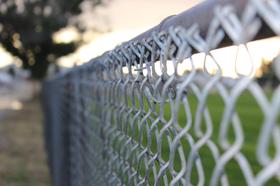Frps Early Learning Center serves 108 students in grades Prekindergarten.
The student-teacher ratio of 12:1 is equal to the Massachusetts state level of 12:1.
Minority enrollment is 53% of the student body (majority Hispanic), which is higher than the Massachusetts state average of 47% (majority Hispanic).
Quick Facts (2025-26)
- Grades: Prekindergarten
- Enrollment: 108 students
- Student-Teacher Ratio: 12:1
- Minority Enrollment: 53%
- Source: National Center for Education Statistics (NCES), MA Dept. of Education
School Overview
Grades Offered
Grades Prekindergarten
Total Students
108 students
Gender %
Total Classroom Teachers
9 teachers
School Rankings
The diversity score of Frps Early Learning Center is 0.63, which is less than the diversity score at state average of 0.65. The school's diversity has stayed relatively flat over five school years.
Student-Teacher Ratio
12:1
12:1
American Indian
n/a
n/a
Asian
4%
7%
Hispanic
39%
25%
Black
3%
10%
White
47%
53%
Hawaiian
n/a
n/a
Two or more races
7%
5%
All Ethnic Groups
School Statewide Testing
School District Name
Source: National Center for Education Statistics (NCES), MA Dept. of Education
Profile last updated: 12/29/2024
Frequently Asked Questions
How many students attend Frps Early Learning Center?
108 students attend Frps Early Learning Center.
What is the racial composition of the student body?
47% of Frps Early Learning Center students are White, 39% of students are Hispanic, 7% of students are Two or more races, 4% of students are Asian, and 3% of students are Black.
What is the student-teacher ratio of Frps Early Learning Center?
Frps Early Learning Center has a student ration of 12:1, which is equal to the Massachusetts state average of 12:1.
What grades does Frps Early Learning Center offer ?
Frps Early Learning Center offers enrollment in grades Prekindergarten
What school district is Frps Early Learning Center part of?
Frps Early Learning Center is part of Fall River School District.
School Reviews
Review Frps Early Learning Center. Reviews should be a few sentences in length. Please include any comments on:
- Quality of academic programs, teachers, and facilities
- Availability of music, art, sports and other extracurricular activities
Recent Articles

School Choice vs. Neighborhood Schools: Key Factors
Explore school choice vs. neighborhood schools in 2025. Learn key factors parents should weigh when deciding the best fit for their child.

Best School Match 2025: Public vs Charter vs Magnet
Compare 2025 public, charter, and magnet school options with updated data, trends, and strategies to find the best fit.

Public School Boundaries and Equity in 2025
Explore how public school boundaries shape access, equity, and opportunity for students in 2025. Learn the impact on families and education policy.





